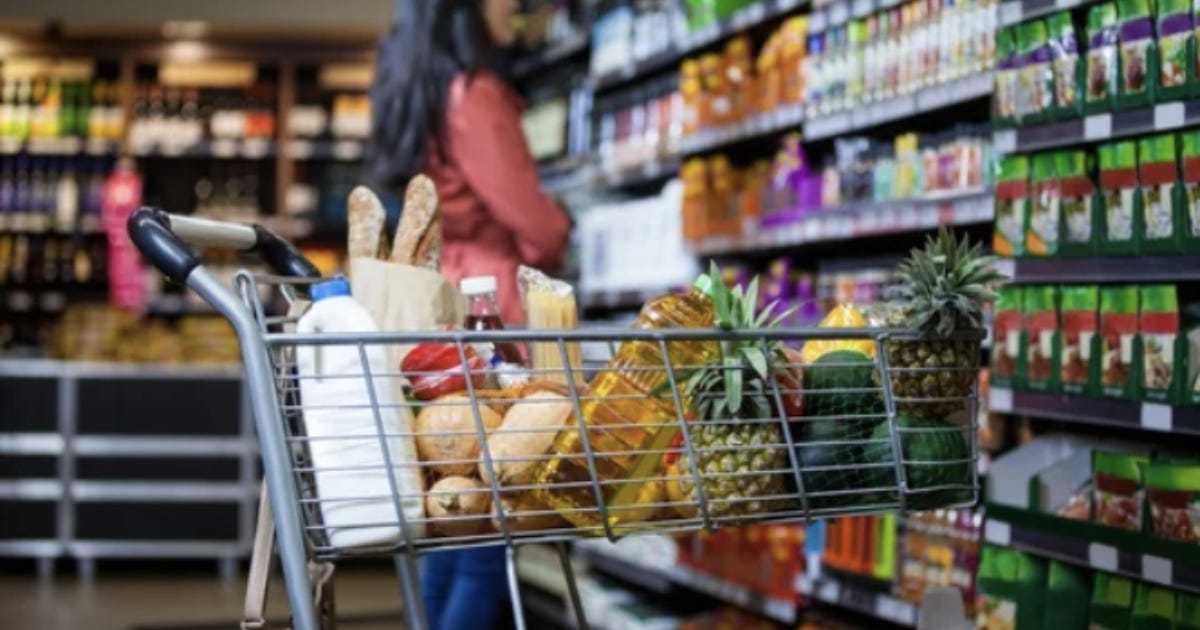OP-ED: Carney ends Canada’s self-inflicted grocery tax
Dr. Sylvain Charlebois writes, "By rolling back counter-tariffs, Ottawa admits what consumers already knew—Canadians were paying more at the checkout for a trade war that wasn’t."
By Dr. Sylvain Charlebois
By rolling back counter-tariffs, Ottawa admits what consumers already knew—Canadians were paying more at the checkout for a trade war that wasn’t.
Based on what we know, most counter-tariffs affecting food, food manufacturing, and retail will be rolled back on September 1. This is welcome news.
It will provide relief for Canadian consumers, greater choice for grocers, and—most importantly—help keep food inflation in check. Even if counter-tariffs did not directly apply to a wide range of products, they acted like the tide with boats: price increases in certain aisles created pressure across the grocery store. In food retail, all categories compete with one another for share of wallet. When orange juice, peanut butter, or coffee prices rise due to tariffs, it indirectly pushes prices elsewhere upward as grocers rebalance their pricing strategies.
This rollback is timely. As we enter the critical fall season, when demand for staple goods and prepared foods typically rises, removing artificial cost pressures will likely prevent food inflation from drifting further out of control. But in essence, Canada has now quietly admitted what many suspected: counter-tariffs were being applied to goods that were technically CUSMA-exempt. Canadians paid higher prices for months on everyday staples like orange juice, peanut butter, coffee, tea, and even wine—products that, under the rules of the trade agreement, should never have faced tariffs in the first place. The uncomfortable truth is that consumers bore the cost of a policy that never should have existed. Few Canadians were aware of it, but they certainly felt it in their wallets. The rollback is not just an economic correction—it is also a political admission of error.
Recognizing that the “Elbows Up” crowd won’t like it, Prime Minister Mark Carney did the right thing by eliminating most counter-tariffs against the U.S. This was never a true trade war between Canada and the United States. It was part of a broader geopolitical shift—an America First agenda. Importantly, this agenda was not targeted specifically at Canada; it was about reinforcing U.S. leverage globally. Carney has shown that he understands this. By resetting the relationship with Washington, he is prioritizing the bigger picture: CUSMA, cooperation on Ukraine, and broader North American integration. The rollback is a gesture of goodwill that acknowledges reality. On balance, it was a good day for Canada.
Canada needs to get along with the United States—we cannot change geography. While some convinced themselves that we had other options, the truth is stark: we don’t. Over 70% of our trade flows through the U.S. market. For food, the dependency is even deeper, as our supply chains are tightly interwoven across the border. Stability in this relationship directly influences the price Canadians pay for groceries.
Rolling back counter-tariffs is only a first step. Ottawa still has unfinished business. The costs of moving food across provinces remain unnecessarily high, and removing these internal barriers would improve efficiency and lower costs for consumers. Canada must also address escalating tensions with other key partners. China is a critical buyer of Canadian canola and pork; India is central to our pulse exports. Both relationships are strained, and the food economy feels the consequences. A comprehensive strategy that recognizes both geography and geopolitics is needed. For now, though, eliminating counter-tariffs sends the right signal: Canada is ready to reduce friction, strengthen North American cooperation, and give consumers some long-overdue relief at the checkout.
— Dr. Sylvain Charlebois is the Director of the Agri-Food Analytics Lab at Dalhousie University and co-host of The Food Professor Podcast. He is currently a visiting scholar at McGill University in Montreal.
You can follow Dr. Charlobois on X @FoodProfessor



All true, but it has always been all true. Carney still went ahead and imposed the tariffs. Why has he suddenly gotten religion now? Either he didn't understand it earlier, or it was all a show for the gullible people who voted for him.
So, is he stupid or is he nefarious?
Are you kidding! Carney's only goal it to break our economy! You give him way too much credit! He just has to go at it a different way now. Do you really think prices will go down?